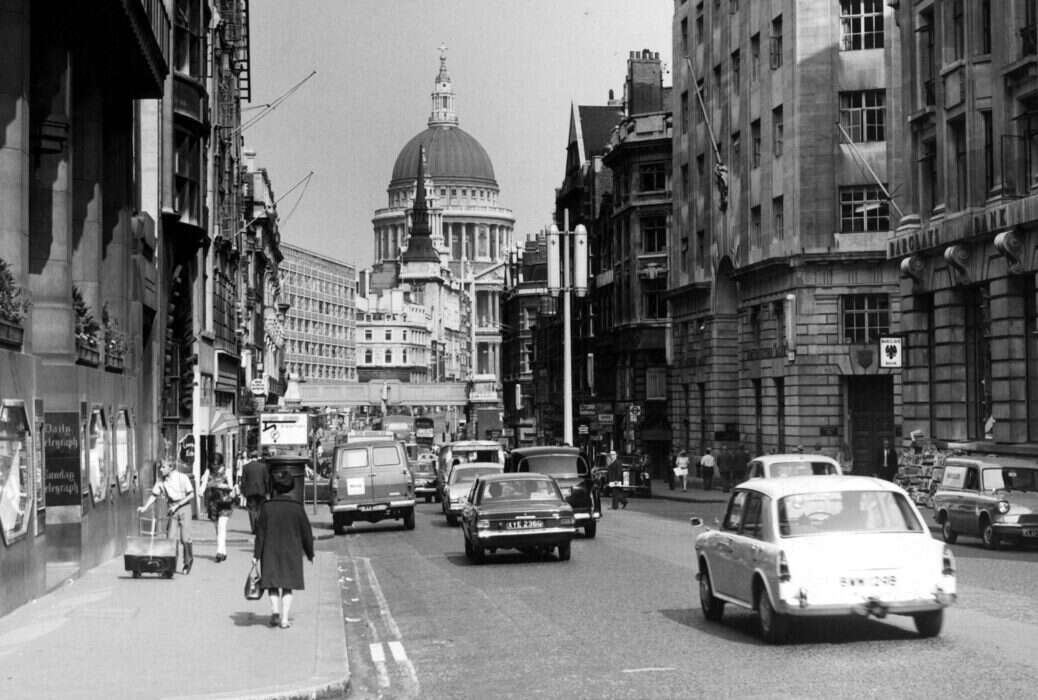
My first nervous day as a news reporter at the Daily Express on 1 May 1973 was improved considerably by a pep talk from news editor Jack Fawcett. Never be afraid to ask for backup, he said. This newspaper has huge expertise, the staff are well qualified and there are correspondents from all over the world.
Always bring your passport, every day, and have a change of clothes in your locker. Wear a suit and tie as you could be attending a film premiere or interviewing the Prime Minister. Prepare to see the world. Travel would be business class on airlines and first class on trains, with five-star hotels. Sounded great!
Mr Fawcett was sacked three weeks later. It took me five laborious months to get a job which involved even an overnight… in a guest house in Brighton. Welcome to the realities of Fleet Street.
I’d been interviewed for the job by managing editor Eric Raybould, in carpet slippers, who asked three questions:’When were you born? What salary are you on? What salary do you want?’ There was no meeting with the editor, Ian McColl. In fact, he left a year later without any contact other than a couple of congratulatory notes.
My debut was marked by a strike from train drivers and underground staff. It meant a one-hour 45-minute crawl in a car (compulsory to have one to hand, I was told) to the office from a rented room in Edgware just 11 miles away and then a long trawl of the local streets looking for a parking place. Most of the anticipatory excitement of the first day evaporated as I concentrated on being on time for a 10am start.
The newsroom was empty save for a single reporter called Frank Howitt, looking exactly like I’d imagined an Express reporter might look: casually expensive in a dark blue suit and tie, hair slicked back, a worldly air, pugnacious.
He was clenching and unclenching his fists. He nodded a greeting before stalking up to a group of three sitting on the news desk. He leaned forward and let forth some expletives about a story he’d worked on which hadn’t made the paper.
About half an hour later, he announced: “I’m off for a drink.” I was amazed. It wasn’t even 10.30 a.m. Where could he possibly get a drink at that hour? I had a lot to learn.
I was 25 and had been a journalist from the age of 18 after GCE A levels, when I joined my local weekly in Walsall, Staffordshire. I had been chief reporter on two weeklies and worked for two regional morning newspapers. I thought I knew a thing or two. Good job I was under that illusion. It kept me going.
The Daily Express was then selling 3.3 million copies a day. With a daily readership of 10 million on such a popular broadsheet, doors opened, people talked and reporters were actually welcomed. I recall John King, West Country reporter, saying: “It is worth a tenner a week to knock on a door to say you’re from the Daily Express rather than the Daily Mirror.”
It was also worth a tenner on my first morning to be introduced to a chunky guy in a grey suit and neatly combed hair called Norman Luck. He gave a tutorial on how to craft expenses. As a hack from the provinces (Black Country, Birmingham, Bristol) expenses were usually calculated by bus routes and the price of a sandwich in the cheapest cafe.
At the Western Daily Press, Bristol, you’d even have to provide your own typewriter (with no expenses for new ribbons) and use a clapped-out office Mini rather than your own car if a job was more than 50 miles away to save on mileage.
So to hear Norman’s encouraging formula was like being shown the way to El Dorado. My salary had been increased from £47.50p a week (£2,470 p/a) as deputy chief reporter of a regional daily to £76 a week (£3,952) as a lowly news reporter at the Express. I had no idea whether it was good or bad compared to the rest, but I was more than happy. It was a four-day week and there was already talk of E-shifts (£28). I thought I was in Sunshine Street.
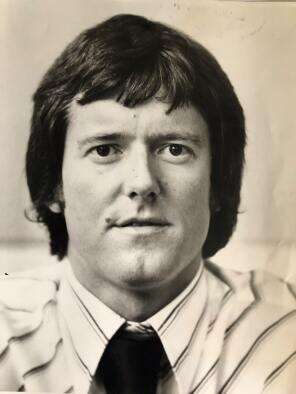
From a clapped-out Mini to mid-market
First impressions? Mayhem. Noise. Exhaustion. Sharp-edged metal desks splayed out in a haphazard manner, ditto chairs, a line of grey lockers, the signs still forlornly hanging from the office being used for a scene in the film The Day The Earth Caught Fire (1961) urging us to: Make It Fast, Make it Accurate.
Many discontented under-used reporters, using the greeting: “Hello, old boy,” who seemed to spend whole days on ‘doorsteps’. Older ones, known as ‘heavyweights’, telling tales of long ago and sitting in the local pubs – initials chalked on a blackboard in the news room alongside the name of the pub – rather than hanging around the office waiting for something to happen. There was even a bookies directly next to the grand art deco entrance of the Express building, always popular.
A flow of agency copy to follow-up and rewrite. The sort of stuff I had been sending in for years from local newspapers. Much of the work for most of the news reporters seemed desk-bound. My first story was for a ‘flong’ page, I was told. It made a page lead, soon to be abandoned by the second edition. But I was thrilled. A page three I had been particularly proud of on the second day was rewritten by a sub. It was better than my original. Infuriating.
What were the mechanics for a hick from the sticks like me moving to London? First, selling up in an idyllic cider village in Somerset where I could buy scrumpy from the friendly local Myrtle Farm, much later to become the headquarters for Thatchers Cider. But in the meantime, renting a room and searching for a new place amid the work pattern at the Express, starting at 10am, 2.30pm, 5.30pm or 8pm on the graveyard shift. No wonder half the staff in the building seemed to come from Essex or were on the shortest possible commute from the suburbs.
Like many before me – and presumably long after – I was faced with the fact that all I could afford in London was a two-up, two-down terrace in down-at-heel Fulham. I foolishly passed by the chance. Those same houses, painted in Farrow and Ball colours, lavishly extended and now described as ‘cottages’ in what has become one of London’s most fashionable areas, are exchanging hands at up to £2 million.
It was a different London in those days. Still less than 30 years after the end of the war, with cleared bomb sites surviving as car parks – I would use one near Smithfield Market – and whole areas were run-down and worn out. The general gloom was not helped by non-stop strikes, power cuts, the three-day week to conserve electricity, a 50mph motorway limit to save petrol and the start of the IRA bombing campaign in August, 1973. It seems, at the moment, we’ve gone back to the future.
The Express’s elite line-up
But friendships were made on the Express with the likes of entertaining Mike Evans, who later became defence editor of The Times, warm-hearted Geordie David Richardson, who would become an excellent foreign editor of the Express and brisk but friendly John Harrison, whose soaring career as a foreign news correspondent for the BBC was cut short when killed in a car crash in South Africa in 1994. We all socialised at each other’s homes.
I also knew and lunched regularly with Paul Dacre, who seems to have undergone a personality transplant in those years. In the early 1970’s he was shy and blushed when regularly teased by “secretaries” (such a dated job description) for his seriousness as he quietly beavered away in the features department.
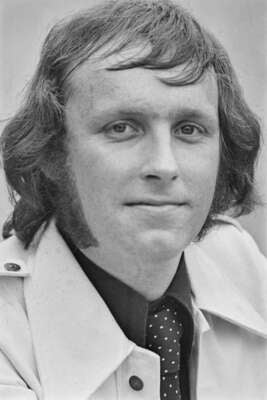
He complained that many thought he’d been gifted the job at the Express thanks to his journalist father, Peter, who worked as a showbusiness writer for the Sunday Express. I’ve not spoken to or seen Paul since about 1980 so can write without prejudice.
The guy, just my own age, was blessed with natural talent. He worked tirelessly and cared like no one I knew, to the point when he burst into tears in The Albion pub virtually opposite the old Express building. His copy had been slaughtered in a rewrite and he found it too much to take.
He was always concerned with improving rather than rewriting and looked at features in particular as some kind of art form. When he was allowed to leave, without a whimper, both Mike Evans and myself declared we could hardly believe the newspaper had let such talent slip away. Not that anyone was in the least interested in what we thought.
On July 27th, 1973, another future high-flyer was able to sneak out – but few could have guessed or even noticed. Kelvin MacKenzie, a friendly, cheery, fast-talking sub who was teased mercilessly about choosing to leave the Express for what was regarded as the abyss of The Sun, had farewell drinks at The Punch.
But there were so many to respect in those heady days. The worldly and inspiring Tom Brown who along with the equally-assured Arliss Rhind – assistant night news editor to Ben Voss when I started – later made the best news desk I’ve worked for, before or since. They were too big for office gossip, petty cliques or the drinking clubs which existed.
Herbert Kretzmer, who had won an award for co-writing the Peter Sellers hit Goodness Gracious Me, was theatre critic. With swept-back hair, a neatly trimmed moustache and a cigarette holder he could have passed for a star in a 1930s movie.
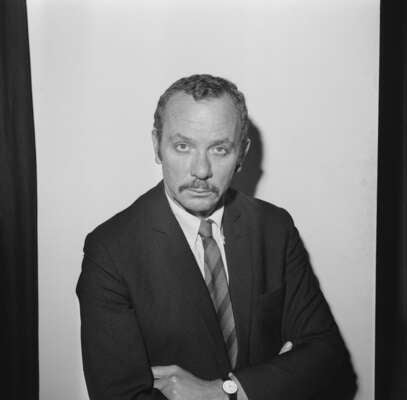
But despite considerable flair – he co-wrote the song She with Charles Aznavour a year after our first meeting and made his fortune – he always seemed to doubt his ability. He complained to me that his copy was being cut and that it often didn’t make sense the following morning.
The great Chapman Pincher, who had won an award as Reporter of the Decade in the 1960s, rarely entered the office. He was too busy meeting contacts at the Special Forces Club, behind Harrods, or various discreet bars in the smartest London hotels.
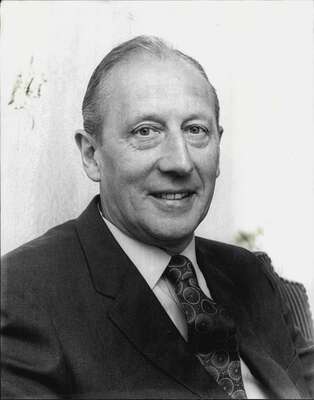
When he eventually emerged he spoke in a warm, no-nonsense Yorkshire accent, insisted I called him Harry – “because that’s my first name” – and, like Kretzmer, complained of cuts to copy “by idiots you don’t know any different. You will soon see…”
Within weeks, I was entrusted with his holiday address, for some bizarre reason, at which the office could get in touch if there was anything urgent. It was: “Berth No 621, The North Denes Caravan Site, Frinton-on-Sea, Essex. Messages were to be left at Mrs Tilly Smith’s tripe stall, telephone Frinton 2741.” (You can see I kept a diary). Not quite what I’d expected from the smooth operating spy-catcher.
Percy Hoskins, chief crime reporter, who looked uncannily like film director Alfred Hitchcock, was another who was hardly seen in the office. When he did, he handed me some firm advice. “Never sit at the same desk twice,” he said. Why not? “Because people put things on it.”
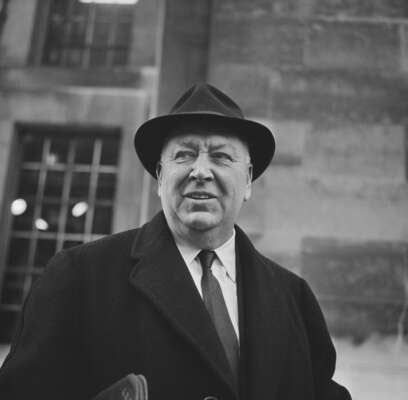
He loved high-pressure crime stories and London life, which he seemingly lived to the full from an apartment in Park Lane. “Stress keeps you alive,” he opined. “My brother lived all his life in Bridport, Dorset (Percy’s home town) and dropped dead one morning picking up a copy of the Daily Express from his letterbox.”
Jean Rook, the so-called First Lady of Fleet Street, who had joined with fanfare exactly a year before my anonymous debut, was well beyond any means of contact. She operated from a large office overlooking Fleet Street, more luxurious than that of the editor. Her secretary acted as a go-between for the oiks, of which I was a member.
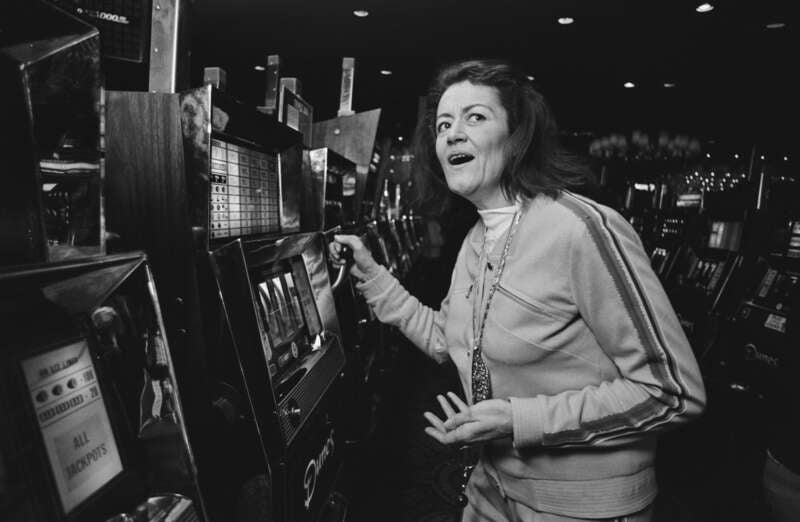
I didn’t get to really see her in action until years later at Cannes Film Festival when it was attended by Prince Charles and Princess Diana. The way she worked and her tireless efforts to be first with a story were remarkable and admirable. Any help was always recognised with a handwritten note of thanks, too. The top journalists were there for a reason.
These were the big players, of course. But at every corner, in a myriad of offices, there was talent. James Wilkinson, who looked like a doctor, was medical correspondent. He was later hired for the same job by the BBC.
Susie Menkes, who would become one of the world’s most famous fashion editors with jobs at the International Herald Tribune and Vogue, was Fashion Editor. Always upbeat, always friendly, always underappreciated.
Bruce Kemble, with an English degree from Cambridge University and an encyclopaedic memory for Max Wall jokes, covered education. He gave me two pieces of very good advice: A. Know the office gossip (I genuinely wasn’t interested), and B. It’s not enough to get a good story – go down the pub’ and talk about it (I was hopeless at that, too).
The sharply witty Peter Chambers was the travel editor, and Peter Grosvenor, who read constantly on his train journey to and from Bath each day and wrote reviews in the office, was the much respected Literary Editor.
And how about the sassy Sandy Fawkes? She was an elegant forty-something redhead, a former fashion editor of Vanity Fair who had ghostwritten Christine Keeler’s book and was married to famous cartoonist Wally Fawkes. She hoovered up some of the best jobs in the features department.

So many of them had other talents. Ian Christie, film critic, could murder a lousy film with a couple of killer phrases and then play superb jazz during his long lunchtimes. And all had huge specialist expertise.
Then there were the cartoonists. Osbert Lancaster, (plain mister in those days, knighted in 1975) historian, stage designer and old-fashioned dandy. He was a true eccentric, one of many in the building, who always murmured a quizzical greeting to me as if meeting for the very first time.
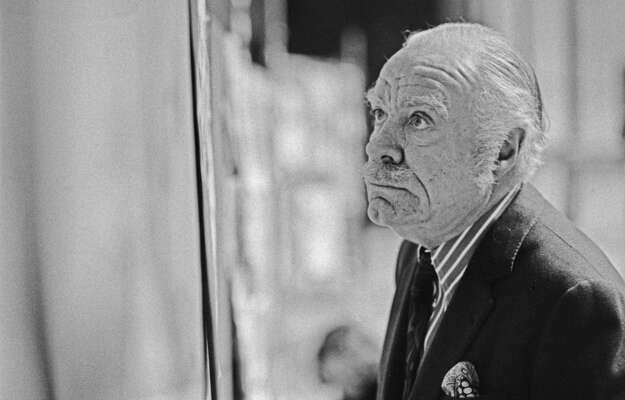
He managed to fit in drawing his pocket cartoon during a couple of hours in the office during late afternoon in an otherwise clubbable life organised by his protective secretary, Liz.
The tall, lugubrious and very pleasant Roy Ullyet whose handlebar moustache put Osbert’s in the shade, would wander around every corridor thinking of ideas. He was hired when the legendary editor Arthur Christiansen was in his pomp, he told me, and the circulation had soared over four million.
He cheerfully introduced me to his big pal, sports writer Desmond Hackett, then something of a star. I also dealt with Roy’s feisty daughter Freya years later when she was the manager of pop star Shakin’ Stevens.
The mysterious Carl Giles, with the biggest reputation of them all, sent in cartoons from his Suffolk home via train from Ipswich and never came to the office because he feared he was unappreciated. He kindly gifted me one of his original cartoons (it still hangs proudly in a downstairs loo) for a bottle of whisky.
All seemed to enjoy working at the Daily Express – with a few reservations – and spoke highly of the newspaper. Some of them had been hired directly by Lord Beaverbrook, who had died just nine years before. Many enjoyed high-end lifestyles. The lanky motoring correspondent, David Benson, who told me he had trained as an actor – “but failed hopelessly” – lived in the heart of Mayfair.
The Hickey team in those days seemed to combine all of the riches on the newspaper. Public school backgrounds, buoyant confidence, a sense of constant drama, utter madness, comic timing and undoubted talent. It was inspired by the bone-dry wit of former actor and pilot Peter Tory, whose parents I met on a trip to Bermuda in 1976 when they asked, in concerned tones: “Does Peter still drink whisky by the gallon?”
But there was also the ebullience of Peter McKay, the smooth intelligence of Ross Benson and the sheer style of immaculate Christopher Wilson. They delivered laugh-aloud columns and loved writing them.
Douglas Orgill, who had turned from sub to writer, was another to much admire. I discovered he was also from Walsall, despite speaking and writing so eloquently. When I had occasionally watched Walsall football club in the early 1960s, one end of the tiny ground was dominated by an enormous laundry. It turned out that the Orgill family owned it, yet he’d never watched a game in his life.
So I was able to share hometown tales with Dougie, including boring him with my obsession with West Bromwich Albion, alongside another of the greats, Jim Davies, who would kindly invite me to lunch. I mostly listened, of course. When Douglas died, aged 62, his parents, both in their 90’s, survived him.
And for good, solid advice? Bob Millar, another sound Scotsman among many, would listen carefully and offer pointers on behaviour and reaction to events. His daughter Fiona, who introduced me to her nervous-looking boyfriend, a quietly spoken Daily Mirror reporter called Alastair Campbell, later become a very positive addition to office life.
There were some delightful oddballs. Judith Simons, a show business writer, looked bonkers with a drooping cigarette and a fresh one always at the ready. But her little strut was deceiving, as I discovered when working alongside her for several years. She had a memory like a filing cabinet for every pop star and indiscretion going back to the 1950s.
The best reporter? Phil Finn, who I was fortunate to meet within months of starting, on my first trip to New York. He was an Express fanatic and even had ashtrays made with his column This is America stamped across them. I still have mine, despite being a non-smoker.
He lived, breathed and talked non-stop about the Daily Express. He was in love with the place and was warm and generous to anyone fortunate enough to work for it. Long after I left, some nonentity editor – god knows which one – sacked him in yet another thoughtless cull.
My own experience as a news reporter lasted exactly a year. Even in the first week, I asked one of the ‘heavyweight’ reporters, George Webber, about the parade of fairly well-dressed journalists carrying black briefcases who languidly made their way across the back of the newsroom at around 11am each morning.
“Oh, don’t bother with that lot,” he said, scornfully. “They’re specialists. Just one subject…and live in their own world.”
Mmmm.
Finding one’s way after Fleet Street
I eventually left the Express on a ‘free transfer’. I had applied for two of the well-paid redundancy schemes when Christopher Ward was editor and, finally, with Nick Lloyd – both to no avail.
But the Mickey Mouse world in which I operated was changing rapidly at the time. Film companies were losing interest in having journalists on their film sets, so how about just one who wrote for a whole range of different markets? That’s where I came in.
I was able to syndicate widely in America through the New York Times and, at one point, supplied 50 newspapers and magazines around the world. In the UK, it was every glossy monthly and supplement ranging from my regular gig with The Sunday Times Culture to Sunday magazine in the News of the World.
I was able to write books on James Bond film sets and trip around 35 countries, interviewing the famous, the egotistical and the certifiable. All inconsequential and lightweight nonsense in the scheme of things. But great fun. It was thanks in many ways to those contacts and knowledge – and mistakes – amid the victories and defeats at the once magnificent Daily Express.
Long after I had left the newspaper, I had lunch with actor Peter Howitt, son of Frank, at the point he had written and directed the highly successful film Sliding Doors (1998) with Gwyneth Paltrow. I told him of my first meeting with his dad.
He asked about every detail I could recall, including each job we shared. “You saw more of him than I did,” he said, ruefully. He offered a son’s view of a Fleet Street father: always working, a succession of missed dinners and late arrivals, excuses over the phone and the thrill of rare trips out with absent dad.
He fondly remembered going to a pub with him for the first time. Even then, Frank was working on a story.
Peter recalled that he had asked the pub landlord: “Do you believe in free speech?” “Yes, of course,” was the reply. “Good… can I use your phone?”
A proper Express reporter.
Email pged@pressgazette.co.uk to point out mistakes, provide story tips or send in a letter for publication on our "Letters Page" blog
